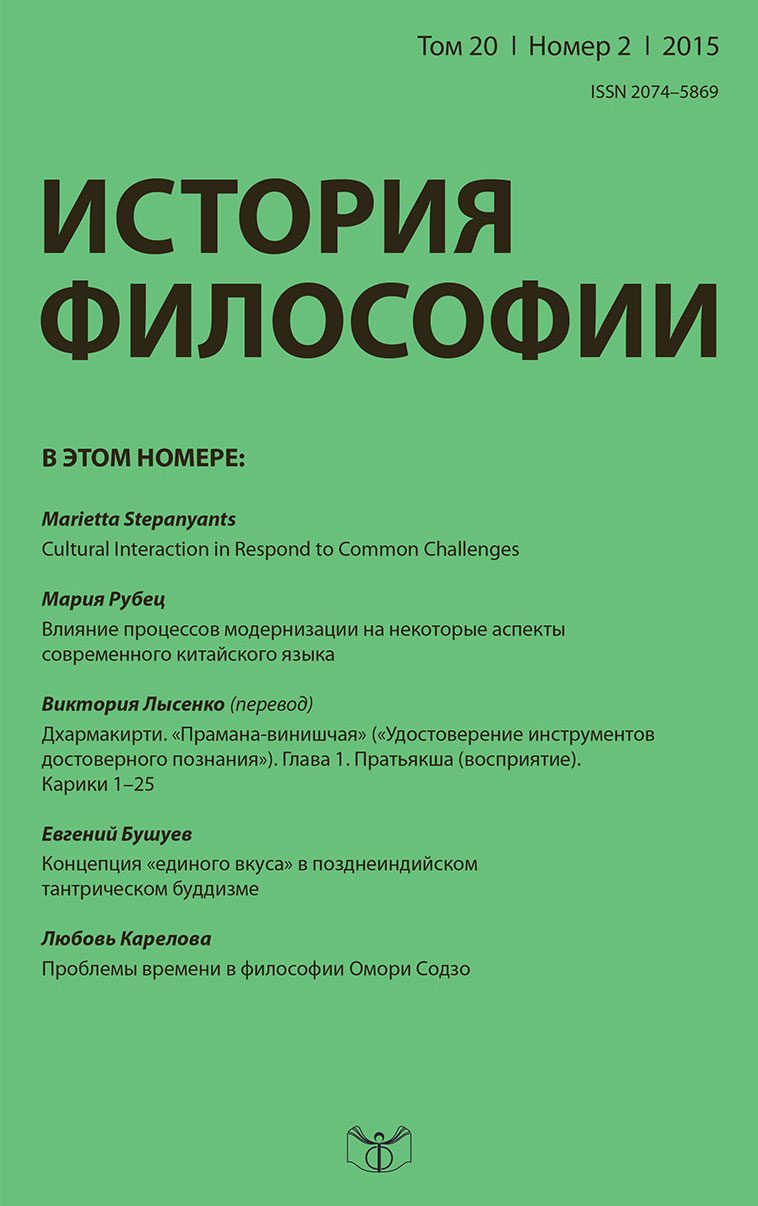Conception of “One Flavor” in the Late Indian Tantric Buddhism – on the Basis of the “Muktāvalī-hevajra-pañjikā” by Ratnākaraśānti
Keywords:
Tantric Buddhism, “Hevajra-tantra”, “Muktāvalī-hevajra-pañjikā”, Ratnākaraśānti, ekarasa, samarasaAbstract
This article is a textological research of the Tantric Buddhist conception of “one flavor” (ekarasa)
based on the material from the “Muktāvalī-hevajra-pañjikā” commentary on the tenth chapter of the
“Hevajra-tantra”. The commentary was composed by Ratnākaraśānti, one of the greatest Buddhist
intellectuals of the 19th century. The sources used for this research of the relevant passages from the
“Muktāvalī-hevajra-pañjikā” are the most important original manuscripts. Their usage allows to
critically approach the only edition of this Sanskrit text.
Downloads
Published
2019-06-27
Issue
Section
INDIAN PHILOSOPHY
How to Cite
Bushuev, E. (2019). Conception of “One Flavor” in the Late Indian Tantric Buddhism – on the Basis of the “Muktāvalī-hevajra-pañjikā” by Ratnākaraśānti. History of Philosophy, 20(2), 126-138. https://hp.iphras.ru/article/view/3137

